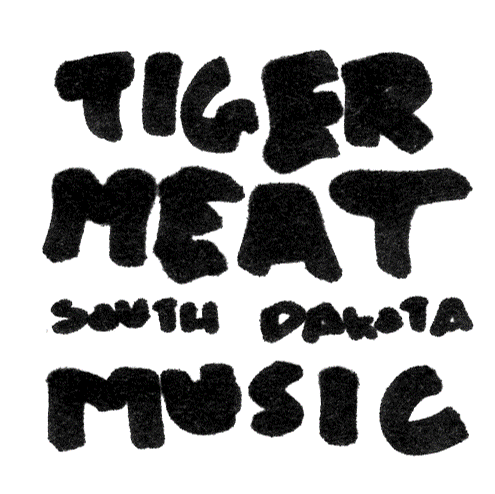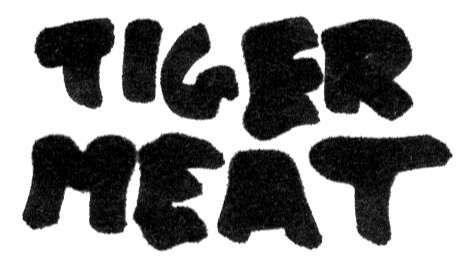Dewey Lynore
Don’t Listen
2022 | Folk
— track 5: “Two Cracked Bottles”
Jonathan Dewey Bates: I don't really write light stuff. Usually when I'm writing a song it's a personal experience, and it's usually a pretty difficult one. I'm of the opinion that songwriters need to write more songs that are real, and confront issues. You don't really want to, like, bleed all over your audience, and use your audience as a therapist. But I try to write stuff that's honest, and hopefully get people thinking about it.
Tessa Bates: Correct me if I'm wrong, but the writing process for you has always been partly a way to process and heal bits of traumatic experiences.
Jonathan Dewey Bates: Yeah, yeah. It's a cathartic thing. There's a lot of songs I've written that I've trashed because I'm like, "Mmm, I don't want to sing this at shows." [laughs] But there are certain ones that are a part of our story. And that's just kind of how we are, just open about stuff. With this album, it's basically telling parts about our marriage. We've been married for 20 years, so we've experienced a lot of stuff. And so the song "Don't Listen" is telling that story of our experiences through life, being together. And it comes to a point — not just in a marriage relationship, but in different, difficult parts of your life where you're hearing the internal voices telling you to give up — whether that's on life, or on your marriage, or whatever. So that's why I called it "Don't Listen” because it's like, you hear all that stuff and you want to give up. But don't. Don't listen to it.
Tessa Bates: It is kind of funny, though, opening up our Bandcamp page and our album cover says Don't Listen, so like, "Hey, here's our CD, but don't listen to it [laughs].”
Jonathan Dewey Bates: Yeah, it's like reverse psychology, right?
//\\//\\//
Jonathan Dewey Bates: I grew up just outside Rapid City in Black Hawk. My dad was a pastor at the Black Hawk Community Church. He got that job in 1990, that's when I moved here. Grew up in Meade County though, so I was going to school in Sturgis. I've been in bands around this area since junior high. I started playing drums when I was like 12. It was kind of the grunge era and the early Green Day stuff, so it was definitely guitar driven music back then. I was all about getting a guitar and learning how to do it. We had guitars just around the house, my mom played guitar and piano, and so I just picked it up. I had this little, I think it was a Harmony acoustic guitar, and it only had three strings: the E, A, and the D — the lower strings — so I tuned it to Drop D and I just played up and down the neck. I think the first song I was kind of proud of was "Smells Like Teen Spirit." It was totally the wrong way to play it, but to me it was right, you know? So yeah, I never actually did take guitar lessons. I kind of just taught myself. My mom showed me a couple of things here and there, but I never learned good guitar technique and that kind of stuff, I just kind of had to make it up as I went. Which is how it sort of fit in when I started playing punk rock and stuff. Because it's Drop D stuff, totally. Got the three chords and you're good [laughs].
Tessa and I met early 2000, ended up dating for a year and then got married, but it was a long time before we started playing music together.
Tessa Bates: Yeah. I mean, we dabbled a little bit. You always played, but I kind of fiddled around a little bit early on, nothing serious.
Jonathan Dewey Bates: 2009 is when we really kind of started writing music together. I used to be like straight up, hardcore, and metal, and punk rock, and all of that stuff. I was in a hardcore band in the 90s called Guilty Nation. And I don't know where this shift happened, but I just started liking folk music. My mom used to listen to Don McLean, that was one of her favorite artists when she was in college, and also John Denver, so I remember listening to those records when I was a kid. But I kind of hated that kind of stuff [laughs]. It's so funny. I used to hate that and now I love that stuff. How did you kind of get into it?
Tessa Bates: I played violin in school [in Rapid City]. Didn't figure I’d do much with it after school. And then [Jon] played music all the time, so it just kind of slowly shifted into playing with him. I think it was more him like, "Hey, why are you not using your talent? Come play with me."
//\\//\\//
Tessa Bates: He records everything here at home.
Jonathan Dewey Bates: Yeah. I've been sitting on these recordings for a couple of years. The earliest one on the album is probably "The Look In Your Eyes." I think I recorded that one in 2014 or 15. Part of it was recorded in Missouri, we lived in Missouri for seven years.
Tessa Bates: We were moving all over, yeah. And toting kids around with us. Recording with children is not always easy. He just takes it where you can get it, like, "Oh, we're set up in the living room today because the kids are at youth group.” It takes a while. And back in 2010, we were living in Wyoming and we had an entire album, like 10 songs, he had them mixed and almost everything was done, and the computer crashed, and we lost absolutely everything. So it's been a long time coming trying to get this out. It was really, really disappointing. The amount of work, gone.
Jonathan Dewey Bates: I don't think any of the songs that are on Don't Listen were part of that project, but yeah, it's just been one thing after the other with recording for me. I was lucky to get this one released [laughs]. Dexter Carman is a driving force behind that. He put a fire under me to get some stuff released, so I have him to thank for that. We started playing shows with The Cave Collective just a few years ago, and got to know [Dexter Carman] through that. South Dakota Public Broadcasting got in contact with him, they were looking for different local artists that had females in the band, and so he mentioned our name. They called me up, and they're like, "You got anything going on? Like any shows coming up, or any albums do you're going to release?" And I was like, "Totally!" I was like, kind of making it up. I mean, I had all these songs recorded. I just hadn't released them, and I didn't have a reason to yet.
Tessa Bates: I feel like we're definitely people that, if there's not a goal to work toward, we're just like, "Meh!"
Jonathan Dewey Bates: I went and talked to Dexter after that. I was like, "Yeah, we have this interview on public broadcasting. Can I get a show at The Cave?" And he's like, "Yeah, I told them about you. I want to get your music out." I was like, "Alright, fair enough." [laughs] I have a bunch more songs recorded, but I kind of narrowed it down to these five that sounded the best. All of these ones are just Tessa and I on instruments.
Tessa Bates: I did violin, viola and cello. He's on drums, and on bass, and on guitar. [The songwriting is] mostly Jon. There might be a line in a song where I'm like, "Hey, you could word it like this." Not often. There's probably two songs that that's happened. But it's all him.
Jonathan Dewey Bates: We're actually in the process of recording a full length.
Tessa Bates: Maybe not in our home, maybe actually in a studio.
Jonathan Dewey Bates: I'm going to Flat Iron Recording Studio here in Rapid City and recording that stuff. I'm taking a little break from it right now just to promote the EP, and hopefully pick that up again, pretty soon here. So Scotty Miller is the one that runs [Flat Iron]. It's Scott Sr. and Scotty his son. Scotty is the guitar player for the Dead Marthas. They do a rock school there for kids after school, and the on the weekends they have it as a recording studio. It's also a rehearsal space for some bands. My other band was using it as a rehearsal space — Howling Embers, we’re like post-rock instrumental stuff. So with this [next Dewey Lynore album], I'm planning on having some more collaboration. I know a lot of musicians around here. [In] Howling Embers, our other guitarist, Ben LeMay, is a phenomenal strings player.
Tessa Bates: I'm just along for the ride [laughs]. I'm sure Jon's going to write new ones, and I'm going to be like, "Oh, that's my favorite song!" And then he'll write another and I'll be like, "Oh, that one's my favorite!"
DEWEY LYNORE’S ESSENTIAL SOUTH DAKOTA ALBUMS
Billy Music — Midwest Index (2001)
Park States — The Glass Traditions EP (2018)
The Reddmen — Sons of the Morning Star (2003)
Jami Lynn — Fall Is a Good Time to Die (2015)
Kid Dakota — Age of Roaches (2020)
SOURCES
Bates, Jonathan Dewey, Tessa Bates. Interview. By Jon Bakken. 18 April 2022.









